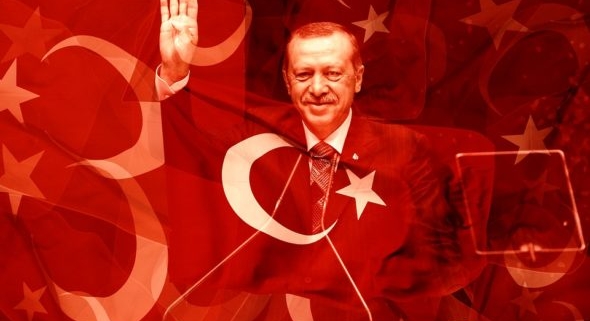Turkey Cannot be Trusted in Syria – Secure Freedom, US
Original article by Anu Adewole.

On Monday, the U.S. and Turkey began joint military patrols along the Syria-Turkish border in what the U.S. has called a “security mechanism.” Kurdish forces including the People’s Protectoin Unit (YPG) and Syrian Democratic Force (SDF), responsible for taking the area back from ISIS control have been withdrawn from the area. The withdrawal of Kurdish troops from the area is a result of an agreed ‘safe zone’ deal between the Turkish and U.S. governments this month. This deal follows the Turkish government’s recent threats to Kurdish-controlled Northeast Syria. Turkey considers the YPG and SDF terrorist organizations and aims to keep them away from its borders.
The Turkish government has been complicit in wreaking havoc in northern Syria over the years. Turkish forces have heavily attacked YPG and SDF in what some would term “ethnic cleansing”. The U.S. supported the Syrian Kurds in Northeast Syria partly because of their successful campaign against ISIS and Al-Qaeda-backed Al Nusra Front. The Kurdish forces, mainly the YPG, have been able to successfully imprison about 15,000 people with links to ISIS. These, prisoners are being jointly held with U.S. supervision.
In multiple attempts to create legitimacy for an inconspicuous takeover of Kurdish controlled Syria, Turkish intelligence, with the help of Qatari and pro-Assad news outlets, have been caught in the act of egregiously falsifying evidence and reports which claimed the YPG and SDF attacked innocent civilians. This propaganda orchestrated by the Turkish government was a bid to create division between the Kurds and the Arabs in Manbij, Syria, an area of interest to the Turkish government.
Data from the Rojava Information Center also shows that there have been more than 30 attacks from Turkish soil aimed towards North East Syria. The most recent attack occurred on August 8th, 2019. These attacks from Turkish areas targeted civilian populations with 27 reported casualties, including children.
“Turkey claims that the ‘buffer zone’ is necessary to protect itself from attacks from the Autonomous Administration along the border, but we can see it is Turkey who is most often the aggressor, violating the border of North and East Syria and frequently targeting civilians without provocation,” Robert Fleming, an Associate of the Rojava Information Center said.
Turkish President Erdogan has recently voiced his displeasure of the length of the talks between the U.S. and Turkish government on a jointly controlled safe zone in the Northern Region of Syria, which is intended for the protection of the U.S. backed Kurds. Erdogan followed up with threats of overwhelming neighboring European countries with millions of Syrian refugees currently settled in Turkey. Earlier in talks with the U.S., Turkey demanded an area of about 20 miles which it will control unilaterally.
Ankara has previously ignored sanctions imposed on Russia by Western nations on multiple occasions, further allowing Russian access into Europe. In a move against U.S. and NATO interests, Turkey agreed to a deal with the Russian government to purchase S–400 missile defense systems earlier this year. This led to the U.S. expelling Turkey from the F – 35 fighter jet program. Erdogan has showed no sign of reversing course and is currently in negotiations with Moscow to purchase the Russian Su-35. This indicates a further shift in Turkey’s alliance away from the United States and NATO towards Russia.
Turkey has created a springboard for Russian influence in Syria and the surrounding region, against U.S. and NATO interests. Moreover, President Erdogan disregards the principles of democracy and supports radical Islam. It has been reported that the Turkish Intelligence has been responsible for aiding approximately 15,000 jihadist fighters to cross into Syria via its borders since 2014. Turkish Intelligence employees have been caught through wiretaps lecturing jihadists, in Turkey and around the world, on various techniques to elude surveillance by various security forces. Erdogan’s son-in-law, Berat Albayrak, was implicated in released hacked emails which showed his involvement in the Powertrans oil imports from Oilfields under ISIS control.
The Turkish government has also sought to spread its support for radical Islam in other regions such as Africa. In Africa, Turkish-backed group, Humanitarian Relief Foundation (IHH), has been serving as a cover for al-Qaeda. IHH has reportedly launched humanitarian campaigns in Northern Nigerian strongholds of Boko Haram where it has utilized the disguise of international aid to supply the Nigerian Terror group with weapons to further its radical campaign in the region.
Given Turkey’s disregard for the U.S. and NATO’s interests in the region and their fight against radical Islam, NATO members must continue to ponder the question of whether Turkey is a suitable and reliable ally.

